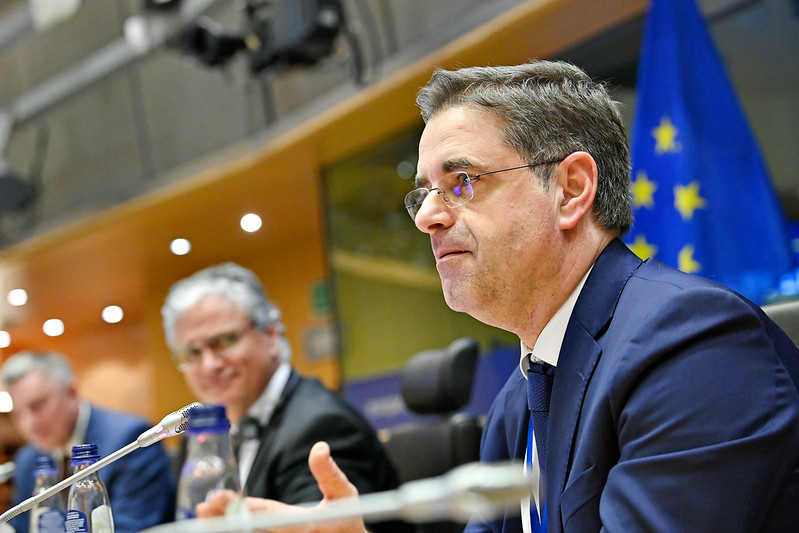Local politicians of the European Union got a head start on discussing the bloc’s Cohesion policy this week.
This came during the December Plenary session of the European Committee of the Regions (COR), the EU’s official assembly of local and regional politicians, Members debated the future of one of the EU’s biggest policies and funds.
While the EU’s overall long-term budget is not to be officially reviewed and renewed until 2027, the COR called for both the continuation and expansion of the Cohesion policy well beyond that date.
The vice-president of the COR, the Governor of Central Macedonia Apostolos Tzitzikostas, said that a “principle of do-no-harm-to-cohesion” should be “enshrined” in the EU’s policy.
The EU’s Cohesion policy is intended to ensure the even development of the EU’s nations, cities, and regions, ensuring that overwhelming economic, social, or political inequalities and disparities do not develop between them.
To this end almost one third of the EU’s current budget is set aside for cohesion, and is delivered through three separate funds.
The COR’s official report, called an Opinion, on the future of the cohesion policy was approved unanimously by the plenary.
The co-rapporteurs, or lead authors, of the Opinion were COR President Vasco Alves Cordeiro – a member of the autonomous parliament of the Azores – and Emil Boc, an EPP Member, former Romanian Prime Minister and current Mayor of Cluj-Napoca.
President Cordeiro said that they were both deeply coordinated on drafting the Opinion. “That we are both with flu at the same time shows you how well coordinated we are,” Cordeiro joked.
“European unity cannot be strengthened in poverty,” Mayor Emil Boc added, talking about the importance of ensuring that EU prosperity was shared across the continent.
The report calls for Cohesion policy to balance long-term goals and project with short term flexibility. Many of the speakers maintained that the shocks caused by the COVID pandemic and the Russian invasion of Ukraine showed that EU funds and policies needed to be able to adjust to sudden disasters.
Boc and Cordeiro were also critical of what they say as the blurring between the EU’s Cohesion policy and its Recovery and Resilience Facility (RRF) – the fund created by European Commission to help the bloc recover from the fallout of the lockdown. Boc said that Cohesion was more inclusive and involved the lower level governments more.
“The RRF is top down, Cohesion is bottom up. The RRF is an emergency measure, Cohesion is long-term.”
As a consequence the COR Opinion called for the two funds to be more clearly separated.
Another key point was brought up by Younous Omarjee, a French MEP for the Renew Group and the chair of the EU Parliament’s Regional Development Committee.
He highlighted the need for Cohesion to be strengthened well after 2027 as it would be needed for the new countries which were trying to join the EU, such as Moldova, Ukraine, and the nations of the Western Balkans.
He thanked the COR for its commitment, and added that while “Cohesion is reuirement” for the EU’s future, it still “needs a continuous political fight.”





